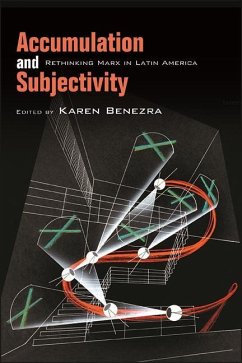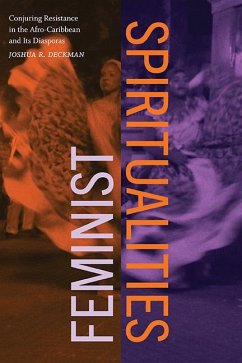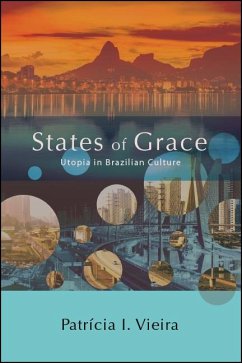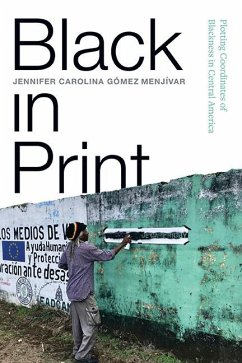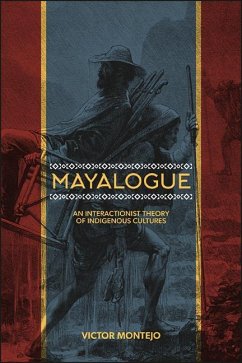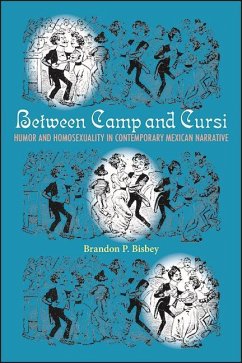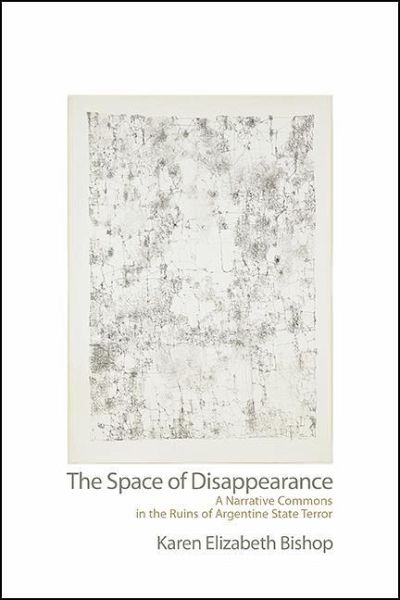
The Space of Disappearance (eBook, ePUB)
A Narrative Commons in the Ruins of Argentine State Terror
Versandkostenfrei!
Sofort per Download lieferbar
25,95 €
inkl. MwSt.
Weitere Ausgaben:

PAYBACK Punkte
13 °P sammeln!
Examines the evolution of disappearance as a formal narrative and epistemological phenomenon in late twentieth-century Argentine fiction.More than thirty thousand people were forcibly disappeared during the military dictatorship that governed Argentina from 1976 to 1983, leaving behind a cultural landscape fractured by absence, denial, impunity, and gaps in knowledge. This book is about how these absences assume narrative form in late twentieth-century Argentine fiction and the formal strategies and structures authors have crafted to respond to the country's use of systematic disappearance as ...
Examines the evolution of disappearance as a formal narrative and epistemological phenomenon in late twentieth-century Argentine fiction.
More than thirty thousand people were forcibly disappeared during the military dictatorship that governed Argentina from 1976 to 1983, leaving behind a cultural landscape fractured by absence, denial, impunity, and gaps in knowledge. This book is about how these absences assume narrative form in late twentieth-century Argentine fiction and the formal strategies and structures authors have crafted to respond to the country's use of systematic disappearance as a mechanism of state terror. In incisive close readings of texts by Rodolfo Walsh, Julio Cortázar, and Tomás Eloy Martínez, Karen Elizabeth Bishop explores how techniques of dissimulation, doubling, displacement, suspension, and embodiment come to serve both epistemological and ethical functions, grounding new forms of historical knowledge and a new narrative commons whose work continues into the twenty-first century. Their writing, Bishop argues, recalibrates our understanding of the rich and increasingly urgent reciprocities between fiction, history, and the demands of human rights. In the end, The Space of Disappearance asks us to reexamine in fiction what we think we cannot see; there, at the limits of the literary, disappearance appears as a vital agent of resistance, storytelling, and world-building.
More than thirty thousand people were forcibly disappeared during the military dictatorship that governed Argentina from 1976 to 1983, leaving behind a cultural landscape fractured by absence, denial, impunity, and gaps in knowledge. This book is about how these absences assume narrative form in late twentieth-century Argentine fiction and the formal strategies and structures authors have crafted to respond to the country's use of systematic disappearance as a mechanism of state terror. In incisive close readings of texts by Rodolfo Walsh, Julio Cortázar, and Tomás Eloy Martínez, Karen Elizabeth Bishop explores how techniques of dissimulation, doubling, displacement, suspension, and embodiment come to serve both epistemological and ethical functions, grounding new forms of historical knowledge and a new narrative commons whose work continues into the twenty-first century. Their writing, Bishop argues, recalibrates our understanding of the rich and increasingly urgent reciprocities between fiction, history, and the demands of human rights. In the end, The Space of Disappearance asks us to reexamine in fiction what we think we cannot see; there, at the limits of the literary, disappearance appears as a vital agent of resistance, storytelling, and world-building.
Dieser Download kann aus rechtlichen Gründen nur mit Rechnungsadresse in A, D ausgeliefert werden.





